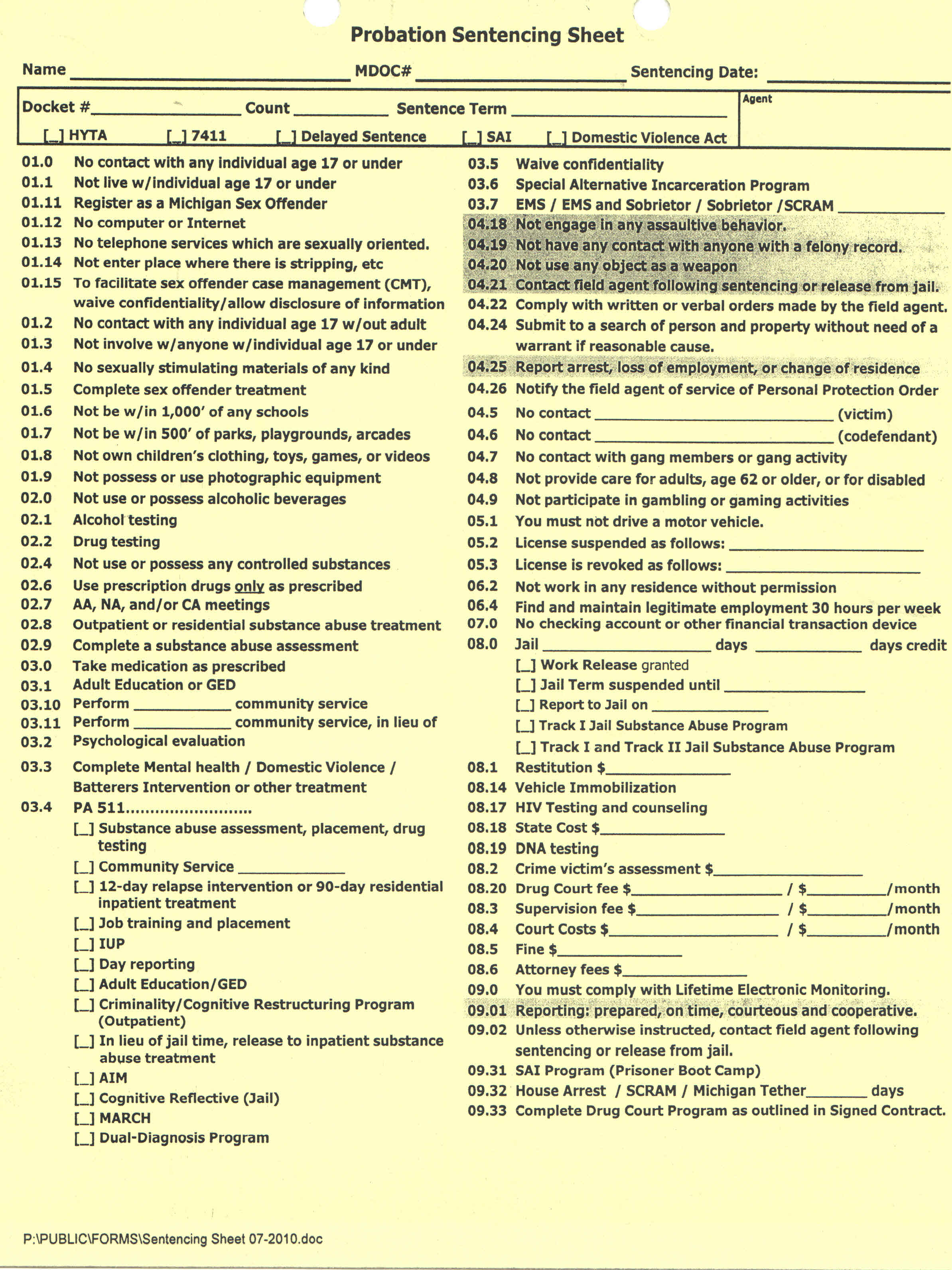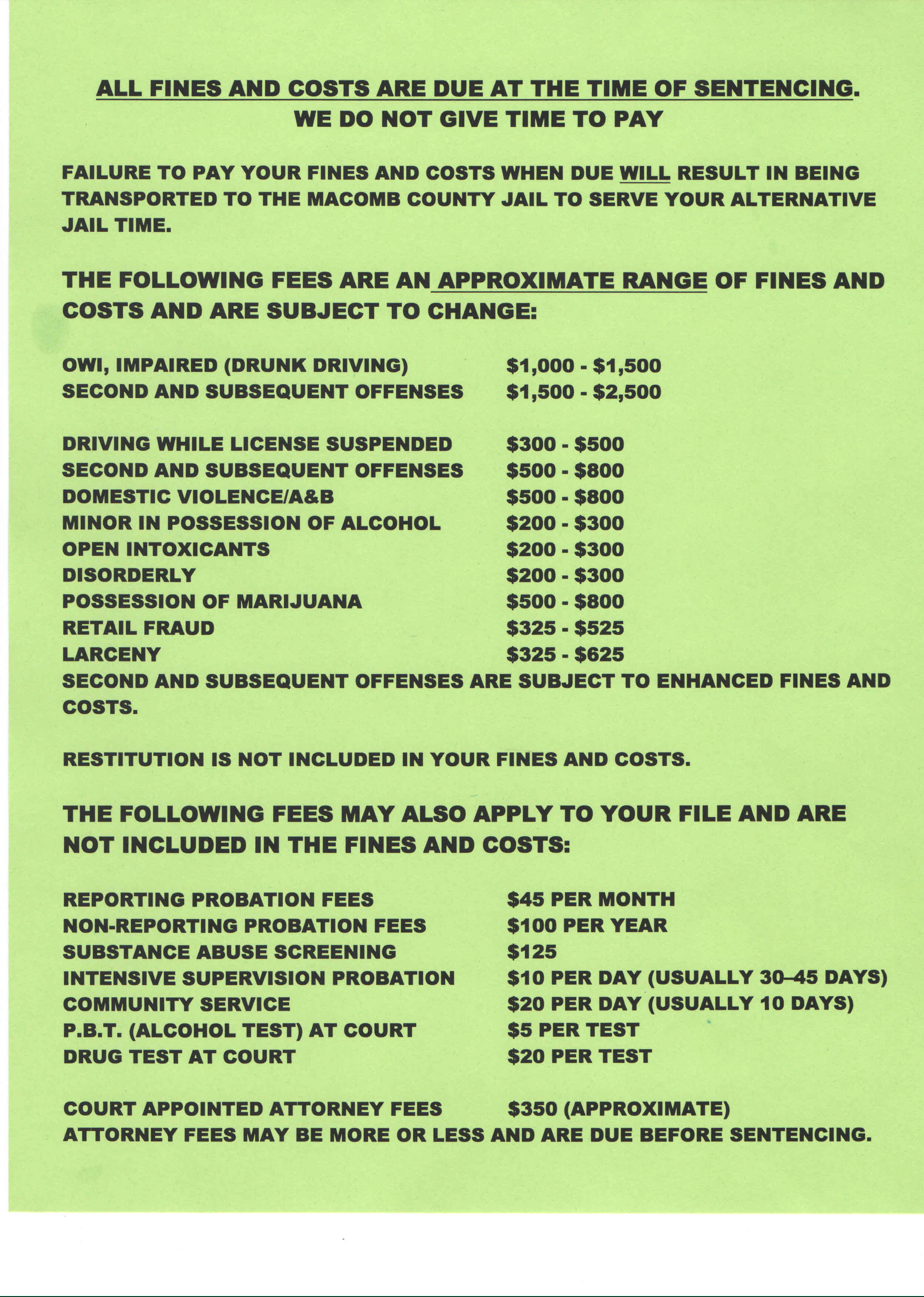
The 42-2 District Court located at 35071 23 Mile Road, New Baltimore, MI 48065. Judge William H. Hackel III is the presiding Judge for the Court.
The Court’s physical jurisdiction encompasses the City of New Baltimore, Chesterfield Township, New Haven and Lenox Township. The water-front City of New Baltimore is located in the heart of Anchor Bay.
The Police Agencies of the 42-2 District Court
There are several police agencies within the 42-2 District Court jurisdiction: Chesterfield Township Police, New Baltimore Police, Michigan State Police (I-94) and the Macomb County Sheriff’s Department. Because of its coastline, the presence of the Michigan Department of Natural Resources and United States Coast Guard is also necessitated in this region.
Chesterfield Township Gets More DUI Cases, Retail Fraud and Traffic Tickets

Chesterfield Township generates the most activity for the 42-2 District Court based upon its geographic size, density, major retail centers (see image above) and vehicular traffic. This is true for all matters heard in the 42-2 District Court such as drunk driving cases, criminal cases and traffic tickets. In 2016, Chesterfield Township administered 166 breath or blood tests in connection with operating while intoxicated arrests compared to 43 tests administered in the City of New Baltimore.
Criminal Cases in the 42-2 District Courts: Provisions of Law to Get Dismissals Available!
Our firm has represented clients charged with just about every imaginable misdemeanor and felony crime in the 42-2 District Court. The following is list of some of the most prevalent cases that we regularly see on the 42-2 District Court’s docket:
Judge William Hackel III has been on the bench at the 42-2 District Court since 2009. The 42-2 District is a conservative district. Judge Hackel runs a tight ship and his Court is run very efficiently. Judge Hackel does have certain preferences for his Courtroom. One of his preferences is appropriate attire and he will compliment an individual that wears a shirt and tie when appearing before him. He also likes to see the presence of family members in the courtroom. Individuals that are placed on probation are expected to abide by ‘house rules’ and Judge Hackel will advise family members to contact him if there is incorrigibility at home.
Getting out on bond, bond conditions: If you are arrested or arraigned on a criminal matter in the 42-2 District Court, you will appear either before a magistrate or judge. Insofar as possible, it is always advisable to have an attorney present for arraignment purposes. An attorney can make a considerable difference at an arraignment hearing by advocating for a personal bond (where no money needs to be posted) or a for a low cash/10% bond arrangement. Judge Hackel and his magistrate will listen to an attorney’s remarks regarding bond which can save potentially thousands of dollars that a bondsman would otherwise take. In addition to the cash component of bond, the Court can also impose bond conditions upon a person’s release from jail. Drug and alcohol testing are common bond conditions for those charged with any crime involving drugs or alcohol. A ‘no-contact order‘ is assured in assault cases, domestic violence, sex crimes and all other crimes involving a victim. In retail fraud cases, the accused party may be instructed to refrain from entering the establishment where the alleged shoplifting occurred. A motion for a hearing can always be filed to modify bond conditions, remove a no-contact order or eliminate travel restrictions.
Misdemeanor or Felony Classification: In Michigan, the district courts have full jurisdiction to dispose of misdemeanors through sentencing. A misdemeanor is classified as an offense that carries up to 1 year in jail. Felony cases are another matter. A felony is classified as a crime that can carry more than 1 year in jail. A felony case is initiated in the district court for the arraignment, probable cause conference and preliminary examination. A felony that is not resolved in the district court will be moved to the circuit court for further proceedings. In certain cases, a felony can be reduced to a misdemeanor and can remain in the district court. Accomplishing reduction of a felony to a misdemeanor, thus avoiding a felony conviction, is considered a huge victory.
The outcome of a criminal case in the 42-2 District Courts, as well as other Macomb County District Courts, is dependent upon many components. The most significant factors that can have a bearing on the disposition of a case are:
- Prior criminal history of the accused party.
- Cooperation with the police.
- Whether another party was injured, or property was damaged.
- The ability of the accused party to provide restitution for damages to the injured party.
- Whether the offense is a ‘policy case’ (crimes against senior citizens, children).
The 42-2 District Court presides over a diverse range of criminal cases which can be attributed to its distinct, shopping, suburban, rural and waterfront areas. In our experience, criminal cases can be resolved favorably at the 42-2 District Court. All of these special provisions of law are possible in the 42-2 District Court which can result in a dismissal of a criminal matter:
- HYTA for youthful offenders (age 17 to 23)
- MCL 333.7411 for first time drug offenders
- MCL 769.a for domestic violence.
- Delayed Sentence or Deferral
Even individuals that have a prior criminal record will be given respect and consideration for plea deals to get a dismissal under certain circumstances.
Drunk Driving Cases in the 42-2 District Court
As I previously mentioned, Chesterfield Township nets more DUI cases than any other municipality within the 42-2 District Court. The City of New Baltimore comes in second place.
For most first time drinking and driving offenders, jail is not likely absent aggravating circumstances. A person without any prior drinking and driving offenses can expect to get an OWI reduced to ‘operating while impaired’ in the 42-2 District. It is extremely difficult and rare, but not impossible, to get a drinking and driving offense reduced to a non-criminal offense. If a person is charged with Super DUI (BAC .17 or greater) a deviation may need to be filed to get a plea bargain to a lower offense.
1st offense drinking and driving: Judge Hackel will consider non-reporting probation for a period of less than 1 year for first time offenders. In addition to probation, a person convicted for a first drinking and driving offense (operating while impaired) is looking at:
- Probation for 1 year or less
- Fines and costs approximately $1,200.00
- Restricted license for 90 days
- Attend an alcohol or substance abuse program
- Possible drug testing, alcohol testing, AA meetings
- 4 points on driving record
There are other mandatory and discretionary sanctions associated with a drinking and driving conviction including: driver responsibility fees, probation oversight expenses and vehicle immobilization. The Court can also order installation of an ignition interlock system on any vehicle driven by a person convicted of a drinking and driving offense.
A repeat drinking and driving offender may be looking at a longer period of probation, up to 2 years, with the possibility of some jail time. There are many steps that we can recommend to those charged with a repeat drinking and offense offense to reduce the likelihood of incarceration in almost every Macomb County District Court.
The 42-2 District Court Probation Department: 35071 23 Mile Road, New Baltimore, MI 48065
The 42-2 District Court has its own probation department located in the courthouse.
It is within the judge’s discretion whether to place an individual on probation after being convicted of a criminal or drunk driving offense. In many cases that qualify as isolated incidents, we may be able to convince the judge that probation, also known as community supervision, is not necessary. When probation is imposed, the judge may require reporting or non-reporting probation. The maximum period of probation that can be imposed in the district courts is 2 years. However, our experience is that probation is rarely imposed for more than 1 year for most first-time offenders and Judge Hackel will often consider less than 1 year for most first offenders.
Traffic Violations in the 42-2 District Court: Reduced to Avoid Points and Record of any Conviction!
Several police agencies have an active presence monitoring the activity of vehicular traffic within the jurisdiction of the 42-2 District Court. Like other district courts in Macomb County, I would say that traffic tickets are on the top of the list of types of cases that are litigated at the 42-2 District Court. When resolving a traffic matter in the 42-2 District Court, we are often able to negotiate a reduction or avoid points. A substantial reduction in a traffic ticket occurs when it is reduced to an offense such as impeding traffic or double parking. A traffic ticket that is reduced to impeding traffic or double parking does not carry any points and will never appear on a person’s driving record! We are also able to get favorable results for individuals charged with misdemeanor traffic offenses such as driving while suspended, reckless driving and leaving the scene of an accident. Unfortunately, most individuals that receive a traffic ticket do not hire a lawyer and wind up with a record and points that will have an impact on insurance premiums for several years. The path of least resistance, paying the ticket, can be much costlier in the long run.
Continue reading ›
![supreme+court+will+not+bypass+lower+courts+to+review+obamacare_1961_800491933_0_0_7053533_300[1].jpg](https://www.michigancriminallawyer-blog.com/files/2015/02/supreme-court-will-not-bypass-lower-courts-to-review-obamacare_1961_800491933_0_0_7053533_3001.jpg)
 Michigan Criminal Lawyer Blog
Michigan Criminal Lawyer Blog




![Jerry_Maguire_movie_poster[1].jpg](https://www.michigancriminallawyer-blog.com/files/2015/02/Jerry_Maguire_movie_poster1.jpg)
 In this 3 part series, I describe different scenarios and possible outcomes for
In this 3 part series, I describe different scenarios and possible outcomes for 
![courtroom4[1].jpg](https://www.michigancriminallawyer-blog.com/files/2015/02/courtroom41.jpg)
![500_1188330532_533138_45768535[1].jpg](https://www.michigancriminallawyer-blog.com/files/2015/02/500_1188330532_533138_457685351.jpg) Once arrested, a person charged with domestic violence will be held in jail, usually about 10 to 20 hours. Upon release, the person may have to post a
Once arrested, a person charged with domestic violence will be held in jail, usually about 10 to 20 hours. Upon release, the person may have to post a  Recently Ann Arbor and Huntington Woods have provided some guidance in Michigan’s fractured, complex, and incredibly controversial Medical Marijuana Act. In
Recently Ann Arbor and Huntington Woods have provided some guidance in Michigan’s fractured, complex, and incredibly controversial Medical Marijuana Act. In 